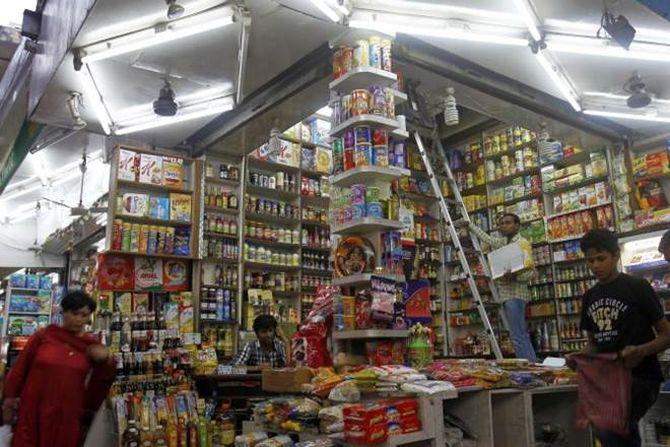While FMCG companies were not barred from carrying out their operations during the 21-day lockdown, since most manufacture staples and essential products, capacity utilisation remained poor, owing to the restricted movement of raw materials, finished goods, and labour.

Makers of fast-moving consumer goods (FMCG) such as Dabur, ITC, and Parle Products say the detailed guidelines issued on Wednesday by the Ministry of Home Affairs will ease supply chain concerns that have marred production over the past few weeks.
Distribution will also take-off in rural areas, which had come to a near halt, owing to limited stocks that were available in the marketplace.
Durables and mobile companies, on the other hand, say plants may open from April 20, but production may take time to stabilise.
“We are hopeful that we will be able to start our units from April 20.
"In both our plants, at Satara and Mohali, respectively, workforce stay around the units, so starting manufacturing activities is not a challenge,” Kamal Nandi, business head and executive vice-president, Godrej Appliances said.
While FMCG companies were not barred from carrying out their operations during the 21-day lockdown, since most manufacture staples and essential products, capacity utilisation remained poor, owing to the restricted movement of raw materials, finished goods, and labour.
This is now likely to improve as firms expect to open more units from April 20, when the guidelines for the second phase of the lockdown will come into effect. The lockdown will conclude on May 3.
“Certainly, the guidelines will be useful in terms of easing the capacity constraints we were facing over the last few weeks,” said Mohit Malhotra, chief executive officer, Dabur India.
“We anticipate last-mile distribution to be mobilised, especially in rural areas, where industries and farming operations have been allowed.
"This is a big plus because our sub-stockists were not operating in rural areas due to the lockdown. They can now conduct their operations.”
Companies also expect better movement of labour, as sectors such as construction open up, prompting migrant workers to make their way back to factory sites.
“The big concern for us was to get labour back into the factories. The guidelines may inspire some confidence in them to get back to work,” said Mayank Shah, senior category head, Parle Products.
Firms have been asked to maintain strict social distancing norms including providing residential quarters for workers at the plants or ensure transportation to and fro factory units with hygiene standards in place.
Firms are also going in for longer shifts with fewer workers and compensating them for the extra hours of work put in.
An ITC spokesperson said the company would focus on manufacturing essential items such as food and hygiene products.
“The easing of restrictions, particularly in the agricultural sector as well as transportation, should help in streamlining the supply chain,” the spokesperson said.
Avneet Singh Marwah, chief executive officer, Super Plastronics, brand licensee for Kodak and Thomson TVs in India, said the final green signal for manufacturing would come from district authorities.
“To keep our premises safe, we will make wearing of masks, gloves, etc, mandatory. Further, frequent temperature screening will be in place.
"We are also setting up a sanitization box (at units) through which everyone would have to pass," Marwah said.
Photograph: PTI Photo











